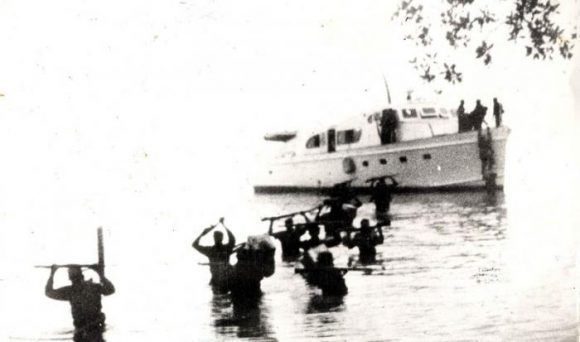
There is so much symbolism in that memorable dawn in which a random landing became an epic of youthful courage, that history calls us, every year, to remember the date of December 2, 1956 as one of the inescapable references in which sustains the epic resistance of the Cuban people.
How not to shudder then when reviewing the tortuous road –between mangroves, swamps and thick sections of roots and split trunks– that the 82 expedition members of the Granma yacht had to travel for two hours, before stepping on dry land with sores on their feet, wounds on the body and the threat of enemy aviation over their heads.
How not to be amazed at the enormous will of those rookie revolutionaries who, led by Fidel, came determined to "be free or martyrs", because the outraged Homeland awaited, yearning, another war cry that would rekindle the libertarian flame of Céspedes, Maceo, Gomez, Marti and Mella.
How not to revere the heroes of that feat, who only three days after the landing had their baptism of fire in Alegría de Pío, with a painful balance of three fallen combatants, a fractured spine, and the dispersal of the revolutionaries, some of them of which were victims of the manhunt unleashed by the Batista army.
However, that setback would not break the fighting spirit of that group of incipient rebels, whose promised word was the promise of a possible future of independence and sovereignty for Cuba.
Cinco Palmas would reaffirm it later in that endearing reunion between Fidel and Raúl, marked by full conviction in victory, although at that moment they only had eight men and seven rifles. The leader would predict it euphorically: Now we have won the war!
This is how the hope of the country began to be painted olive green. This is how the Rebel Army was born which, two years later, would overthrow the tyranny and initiate social changes in which national defense would have a single doctrine: the war of all the people, with the Revolutionary Armed Forces (FAR) in the first trench.
Since then, this army born from the people itself has been an indispensable bulwark for the nation, not only in the combative preparation of the country and in the development of successful internationalist missions, but also in the thrust of each step of the Revolution in which they have been requested their contributions.
There are the men and women in uniform who joined the battle against COVID-19; those who did not hesitate to produce and transport medical oxygen when the country needed it most; those who put up their chests to help fight the fire at the supertanker base in Matanzas; or those who recently went to raise a province hit by the force of a hurricane like Ian.
Implicit in this immense work of the FAR is the altruistic and emancipatory heritage that disembarked with the expedition members of the Granma yacht, 66 years ago today.
